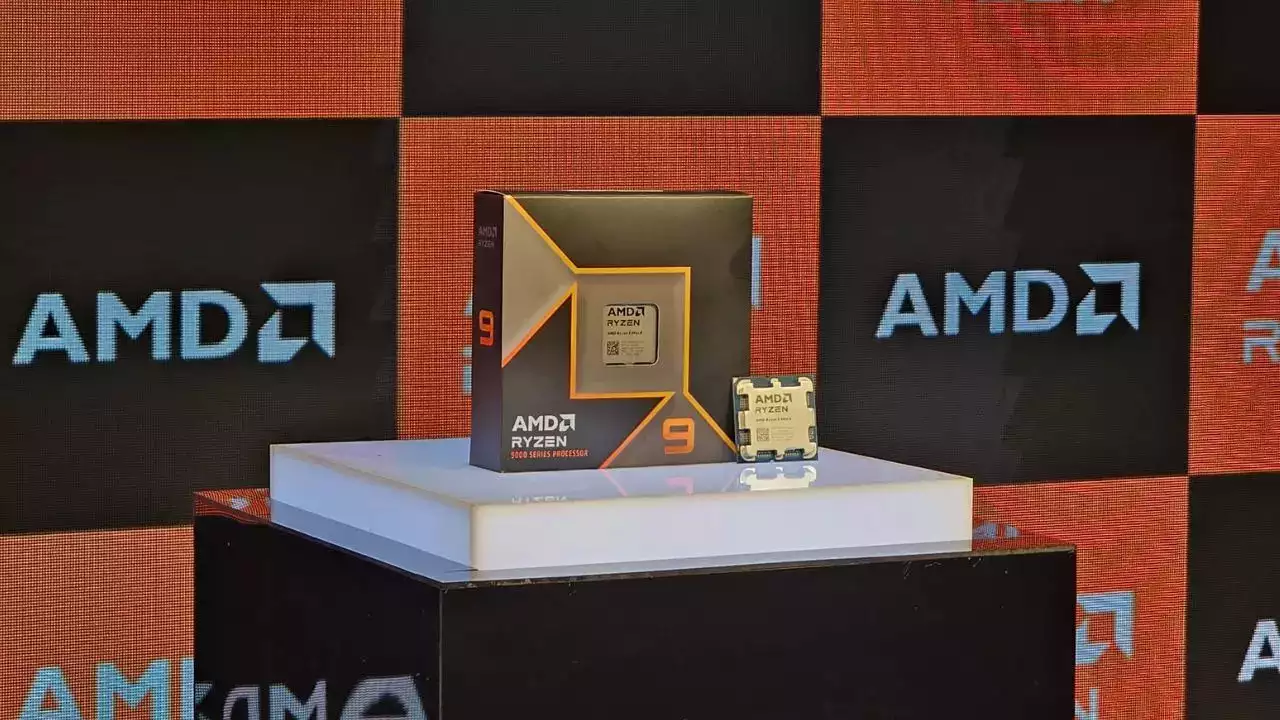
AMD has once again raised the bar in processor innovation with the official launch of its Zen 5-based Ryzen 9000 series in India. These next-generation chips aim to solidify AMD’s dominance in high-performance computing by delivering substantial improvements across the board—efficiency, core density, and AI integration. We got to witness this first hand at the Delhi launch event.
Architectural Enhancements
The Ryzen 9000 series is powered by the Zen 5 architecture, which is built on TSMC’s 4nm process node. With a focus on IPC (instructions per cycle) gains, AMD claims an impressive 20% performance uplift over the previous Zen 4 architecture. This leap is attributed to a complete overhaul of the core design, including wider instruction decoders, enhanced branch predictors, and an optimized execution engine.

One of the headline features of Zen 5 is its AI-optimized workload management. AMD has integrated a dedicated AI engine within its processors, making them better equipped for tasks like natural language processing, image recognition, and predictive analytics. This puts AMD in direct competition with Intel’s AI-driven Meteor Lake chips.
Performance Metrics
The flagship Ryzen 9 9950X, a 16-core/32-thread powerhouse, was demonstrated handling demanding workloads with ease. Early benchmarks indicate that the 9950X surpasses Intel’s Core i9-14900K by 15% in multi-threaded performance while maintaining competitive single-threaded throughput. AMD’s Smart Access Memory (SAM) and Precision Boost 3.0 technologies ensure these processors extract every ounce of performance from supporting hardware.

Efficiency hasn’t been ignored either. The Zen 5’s architectural refinements deliver a 30% improvement in performance-per-watt compared to Zen 4. This makes the Ryzen 9000 series not just faster but also cooler and more power-efficient—ideal for modern gaming rigs and workstations.

Pricing and Availability
AMD’s aggressive pricing strategy for the Ryzen 9000 series positions them as a formidable choice in both enthusiast and mainstream markets. The Ryzen 9 9950X is priced at INR 64,990, while the more affordable Ryzen 7 9700X, with its 8-core/16-thread configuration, comes in at INR 36,190. This makes them competitive against Intel’s counterparts, providing better performance-per-dollar in most scenarios.
AMD Ryzen 9000 Series (Granite Ridge) specifications
| Model | Cores / Threads | Boost / Base Frequency | Total Cache | PCIe | TDP |
| AMD Ryzen 9 9950X | 16 / 32 | Up to 5.7 GHz / 4.3 GHz | 80MB | Gen 5 | 170W |
| AMD Ryzen 9 9900X | 12 / 24 | Up to 5.6 GHz / 4.4 GHz | 76MB | Gen 5 | 120W |
| AMD Ryzen 7 9700X | 8 / 16 | Up to 5.5 GHz / 3.8 GHz | 40MB | Gen 5 | 65W |
| AMD Ryzen 5 9600X | 6 / 12 | Up to 5.4 GHz / 3.9 GHz | 38MB | Gen 5 | 65W |
The series will be available through major retailers and online platforms starting August 8th, with pre-orders already live.
If you’re looking to build or upgrade your system, the Ryzen 9000 series deserves a spot on your shortlist. It’s not just about raw power—it’s about smart performance, efficiency, and future-ready features.

